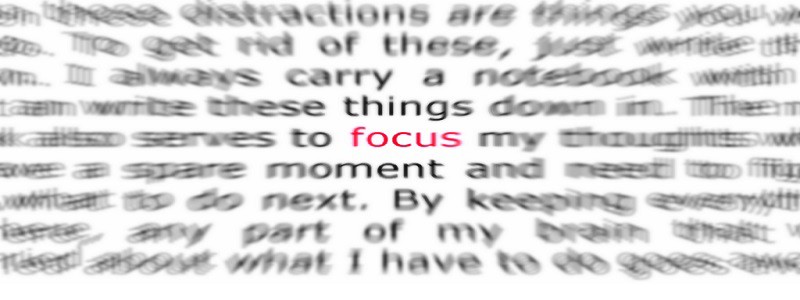
Dissolving the Obfuscation: How Acknowledging Our Argument-Focus Can Help Bridge K-12 and College
By Gerald Graff
Our trouble with schools may start much higher up—in an ivory tower. According to a recent report by some researchers at Stanford University, high school students with college aspirations “often lack crucial information on applying to college and on succeeding academically once they get there.”
Well, duh.
That the intellectual world of colleges and universities is incomprehensible to those who are not already at home in it has long been a common joke. It shouldn’t take a Stanford research team to tell us that when it comes to “succeeding academically,” many students don’t have a clue.
But then, why should we expect them to, since universities do so little to clarify the secrets of academic success to high school teachers, much less high school students. Most diagnoses of the nation’s educational problems are superficial because they fail to note how the university’s intellectual obfuscation trickles down to the schools. A symptom of this trickle-down obfuscation is our reliance on standardized tests, which fill the vacuum left by the university’s failure to clarify what real intellectual prowess is all about.
Unfortunately, college professors tend to confuse clarification with dumbing down, a fact that explains why we do such a poor job of explaining ourselves. It’s not just what we say that’s often opaque, but why we say it at all, why we pose the problems we do and insist—as my students grumble—on “overanalyzing” everything we touch.
And it’s true that college professors analyze obsessively, taking things that don’t seem to be problems on the surface—the nature of love, what happened in history, what texts mean—and turning them into problems that are endlessly analyzed and debated. Turning things into problems is what we academics are good at, and when we are at our best the problems turn out to be more real and important than they seemed at first.
Instead of explaining all this in simple terms, however, we chop this problematizing culture up into disconnected masses of courses and subjects, leaving it to students to make sense of it on their own and then blaming them if they don’t. Consider the confusingly mixed messages to which college students are exposed as they go from course to course and subject to subject. Some teachers and disciplines just want the facts—no interpretations or value judgments, please, we’re scientists—while others penalize you for not voicing your own ideas. (A University of Chicago student who had cracked the code put it well: “In humanities, I B.S.; in social science, I regurgitate.”)
In some courses knowledge is presented as objectively “out there” to be copied down from lectures, whereas in others it is “socially constructed” and produced by class discussion and small-group work. For some instructors, the passive voice is a no-no, while for others it’s obligatory. For someone like me, a word like “problematize” is useful, but for certain colleagues down the hall it’s contemptible jargon, and so on. No wonder students are bewildered and apathetic when the assumptions that were dismissed in one’s morning class turn up alive and well after lunch. And no wonder the high-achieving minority prospers while the majority concludes that the life of the mind is a secret society for which only geeks and geniuses qualify—or would want to qualify.
What is the big secret that is hidden beneath the cognitive overload of the college curriculum? It is that all successful academics, whether they are scientists, mathematicians, or humanists, objectivists or social constructionists, play a version of the same basic game: Listen closely to other people, summarize them in a recognizable way, then make your own relevant claim. This Arguespeak is the common language that connects the diverse academic disciplines not only with each other, but with nonacademic journalists, policy wonks, media pundits, sports-talk radio debaters, op-ed columnists, and other public writers and opinion-shapers.
It is the argument game that underlies all the analyzing and problematizing and gives higher education its relevance to work and citizenship.
It is the argument game that underlies all the analyzing and problematizing and gives higher education its relevance to work and citizenship. Argument has been at the center of education since Socrates put it there two millennia ago, but it has become even more central to democratic citizenship in the age of the Internet, talk- back media, multicultural diversity, and post-9/11 terror, where peace may depend on our learning to argue better—to disagree strongly without rancor or hatred, to put ourselves in the shoes of our opponents, and to change our minds rather than lock automatically into dogmas.
The pity is that adolescents already have a lively culture of argument centered on such topics as the media, clothes, cars, looks, and popularity that could serve as fertile ground for educators to draw on. But it’s symptomatic that high school students get the impression that in order to excel academically, they have to check their everyday argumentative skills at the classroom door.
It’s true that there’s more to being educated than learning to argue: There are emotional and moral training, aesthetic sensitivity, storytelling skill, visual and computer literacy. These skills are indeed important, but they will all be incomplete unless students can translate them into persuasive arguments. After all, to make a case for visual or emotional training, you have to make arguments, not just wave pictures, do a dance, or give hugs.
It’s notorious that the academic intellectual world is opaque, and it’s notorious that our schools are failing, yet we have yet to see the connection between these two facts. Neither school nor college education is likely to get better until we do.

